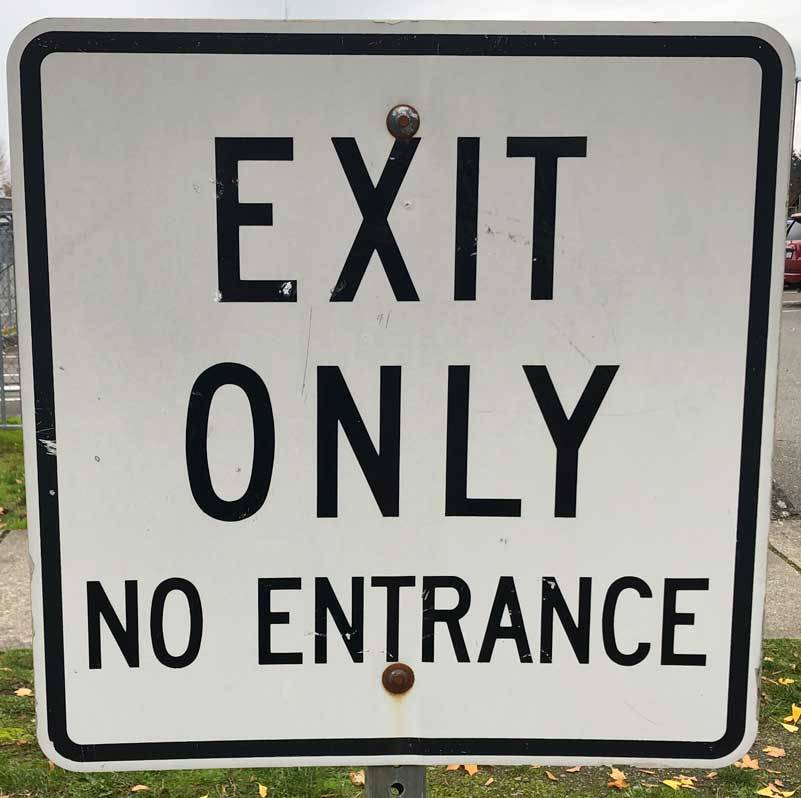By Morf Morford
Tacoma Daily Index
If you listen to the arm-chair experts on employment and the economy, you would have the non-negotiable impression that we have a shortage of all kinds of workers because people “don’t want to work”.
The premise goes that too many workers are getting paid more NOT to work than they were paid TO work.
There are shortages across every category of service work – especially servers, bar tenders, even airline pilots. And medical staff at every level. And school teachers. And bus drivers. And even a nation-wide shortage of people willing to run for mayor of many of our cities.
In other words, we have a shortage of almost every employment category. Generous unemployment benefits might impact some of those areas.
But not all. Or even most. And maybe closer to none.
The Minimum Wage (intended to be a minimum living wage) has barely changed in decades.
But the cost of living has.
The Minimum Wage was last changed in 2008 when it was raised $0.70 from $6.55 to $7.25.
The Minimum Wage is NOT a training wage or a pay scale geared to students or apprentice programs.
The basic pay scale of $7.25 an hour translates to $290.00 a week (working 40 hours) and $1,160 a month and $15,080 on an annual basis.
When was the last time you saw an apartment for anywhere near $1,160 a month?
Putting aside any political beliefs or any ideological preferences or even financial philosophies, the sheer bare bones of the math of our current pay scale dichotomy is, by any standard, unsustainable if not unworkable.
For any standard worker, especially one connected to a family, living on a pay scale anywhere near minimum wage was not practical. Or possible.
For a family, a whole host of non-negotiable expenses emerge – and don’t go away.
From rent to utilities to groceries to school clothes, the economic drain never ends. And for those with younger children, the cost of day care is prohibitive.
And for those who operate the day care – will they be able to find workers willing to accept the near minimum wage pay scale?
Workers need to pay their bills. Employers need to pay their workers. And work needs to get done.
It’s a simple process.
Other nations make it work. It has worked (relatively) smoothly in our county for many years.
If workers are paid fairly, they spend their money which means they support other business which hire more workers who are paid fairly who support even more businesses and so on.
It’s the ultimate virtuous cycle.
When this system works, everyone is employed, every generation is better off than the previous one and the economy continuously expands.
But it does far more than expand.
An economy like this is stable.
Opportunity is relatively equal.
Inflation and deflation are held at bay.
Supply and employment shortages are nearly non-existent.
Employees trust and respect their employers and employers trust and respect their employees.
Taxes are fair.
Everyone contributes and everyone has a stake in our shared success.
Citizens vote for and support candidates they believe in.
Politicians take seriously their vows to represent the needs and values of their constituents.
Entrepreneurs are respected and innovation is valued.
Each one of these is an essential, unique and irreplaceable cog in a healthy economy.
That was then, and this is now
You don’t need to be a professional analyst to realize that few, if any, of these core principles holds true today.
Grievances and complaints, even lawsuits abound.
Distrust, in governments, businesses, even contracts is endemic.
So this is the atmosphere employers – and employees are re-entering.
The bottom line for any employee is that they need to pay their bills and provide for their families.
There is nothing new here.
But in this tumultuous semi-recovering economy, can they?
To put it mildly, it doesn’t pencil out.
Here are just a few questions any potential employee must ask themselves;
Can I pay my rent? Should I go back? How busy will it be? Will I make enough? What about childcare? What about health care? Is my workplace as safe as I need it to be?
Can I literally afford to go back to work?
As restaurants, hotels, resorts and even airlines get back to work, the workers they all need are, like the rest of the economy, not so certain.
I see “Help wanted” signs almost everywhere, but are workers available on those schedules, at those locations, under those conditions and at that pay rate?
Literally millions of companies, agencies and small businesses are re-opening at pretty much the same time.
Their needs are different, their schedules are different and, as we all know all too well, their supply chains are nothing like they were the last time they were fully operational. While those businesses were shuttered, most workers improvised or responded in their own ways; they took side gigs, or new jobs or moved away or retired or re-evaluated their career trajectory – and relationships.
For almost every one, the job market they left is not the one they were returning to. For many of them, as for their previous employers and maybe even the entire industry they worked in, there was no going back.
As one wag put it on social media, if you can’t afford to pay your workers a fair wage, there is something wrong with your business model.
Our models and expectations of work and the workplace have changed.
Transitions are always difficult.
Getting the pieces of our economy back together, and more importantly, working together in common cause is never easy and is, like everything else vastly more complicated this time.
As Warren Buffett put it “Never, ever bet against America.”
However clumsy our recovery might be, and however long it takes, we will remake, reclaim and rebuild an economy to call our own.
So are we a nation of quitters?
Nope.





